Dhal Bhat Days – Vol. 4
9/2/08
For snapshots of Puma – click here!
It rained last night like I’ve never experienced before in my life. I now understand the meaning of Monsoon season. Sure, maybe it was amplified in my mind as it sounds worse when you are sleeping under a tin roof; it echoed through my little barn room as if someone was dumping gravel from above. At one point I did actually consider that the whole mountain might float away. It was better to think of that rather than the huge spider that I saw above my bed before I fell asleep.
The rain means more leaches, which somehow like to attach to me. It’s kind of like how bees seems to flock to one person…I am the leach magnet; I think I am also the laughing stock of the village because of it. Or maybe the leaches just like my lily white skin. I must have gotten this one when I got up and went out to the outhouse bathroom. I was so concerned about the huge spider that lives out there that I must not have paid attention to the leaches…priorities. I know, I know – you are probably wondering why a person that is not comfortable with spiders is living in a remote village in Nepal. I’m comfortable with regular spiders – not huge hairy spiders in my ‘bathroom’ the size of my hand and lightening fast. I mean really – is anyone comfortable with that? Yes…the people in the village Puma are.
Most of my day is spent observing. Since I can’t really effectively communicate with anyone here, that pretty much just leaves observation. Yet the observations leave me with many questions unanswered. Sometimes I will take 20 minutes to simply try to look up how to ask a simple question like “Who is that woman” or “What is in all of the jugs”. But most of all, it has left me with questions about Didi (older sister in Nepalese and Hindi). Didi is name I call the woman who is boarding me. I don’t really know her name, as people don’t really use names here much. I do know that she has the largest house in the village, she is the village community chairperson, is clearly well respected among all, and she lives with her mother, Ama (mother in Nepalese). She also has 1 dog, 1 little skinny kitten that I’m in love with, 2 water buffalo (that’s very impressive in village culture), and 5 chickens. She’s amassed quite a good life here in Puma.
Didi speaks very little English, but we get by when we have to. I am unable to have long conversations with her, but we have exchanged the sentences such as “Are you married?”
”No, I am not married” I said
“I not married” she said. She then asked me “Why no married?”
Oh how I could write a book on this answer….but I had to remember my audience…she didn’t know English words or concepts like “independence”, “freedom”, “waiting to find the right person”. So instead I said “Me no like marriage”. I asked her “Why you no married?”
She replied, “Me no like marriage” and laughed as we had found some sort of bond in our lack of ability to hold a conversation.
This specific exchange left me with many additional questions that I wanted to ask, but could not. This is one of the first women I have met in Asia within a rural area that is clearly powerful, smart, independent and isn’t married. So the obvious question is why doesn’t she like marriage? I’m absolutely fascinated with this. She is a very strong woman – the other night she heard a rat in the kitchen and got a pipe and went looking for it by candle light. I was a bit intimidated.
When I travel I get asked if I am married all of the time; when I say no, the next question is ALWAYS “Why?” I’m left trying to explain that my parents haven’t abandoned me and that in Western culture it isn’t that unusual to be unmarried. People always look at me as if I am a lost cause and they still blame my parents for not trying to find me a mate. On top of all of this shocking discovery, I found out that she also doesn’t like babies as evidenced by her carrying a big stick and waving it at the kids to go away. I can only imagine what the kids think of her! So, I have finally encountered someone from an Asian culture that isn’t married and doesn’t want kids, but I’m left here dying to know more. How the tables have turned.
Putting aside relationship status, there are many other observations that I have taken in. I have determined that even though there are bugs, rats, leaches, and the ‘houses’ are a step above a shack in our western eyes; the women here keep the place spotless. They spend a great deal of time cleaning up…which is quite a feat considering there is no running water in the house. They have to walk up the mountain to get to the water (a waterfall) and then fill big metal containers that weigh at least 30 pounds and they carry them on a basket on their back with a strap around their forehead which bares all of the weight. There is a whole system to the water usage that I’ve started to figure out. What they use for drinking and what they use for washing are different. The water inventory is closely watched and it’s clearly first in first out. I’ve tried to figure out a method to the way they wash the plates, glasses, pots and pans – it is so thorough and it involves at least 3 different pots of water that all seem the same to me but leaves me thinking that they must be different. Regardless I know that the items are clean even though they aren’t using soap. They sweep the house at least 4 times a day and no shoes are allowed past the porch.
So I continue to observe and slowly try to form sentences that ask burning questions that aren’t open ended. It’s amazing how long the days are when all you do it sit around and observe.

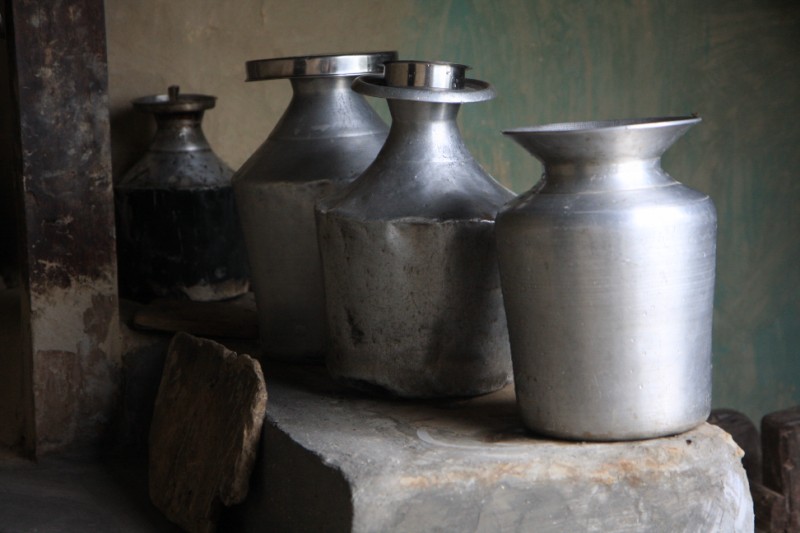
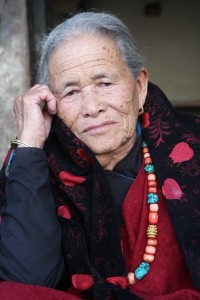
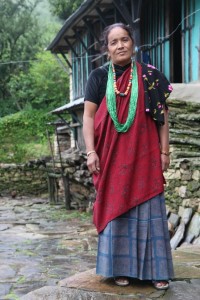
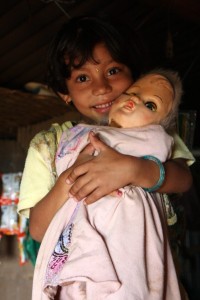

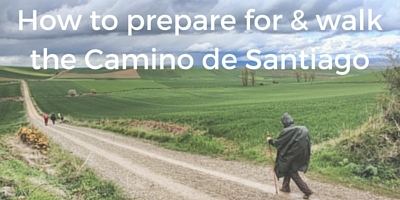
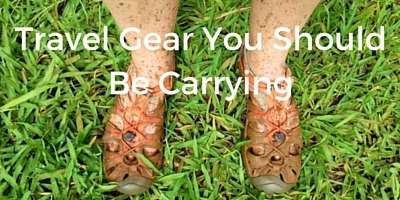


By James September 17, 2008 - 11:50 pm
Hi, I found your blog on this new directory of WordPress Blogs at blackhatbootcamp.com/listofwordpressblogs. I dont know how your blog came up, must have been a typo, i duno. Anyways, I just clicked it and here I am. Your blog looks good. Have a nice day. James.
By sparky September 21, 2008 - 10:29 am
whether due to all your time to observe or your fancy new camera and lenses (musta had great buying advice), your pictures are WAY better Sherry! The portraits especially, you have people looking into the camera and results are much more intimate and grabbing. Even if you can’t communicate verbally you are clearly engaging your subjects. Plus without the damn flash you’re getting much more beautiful light and I love how the shallow depth of field isolates your subject. Keep it coming!
By Raj Gurung December 1, 2013 - 9:12 pm
relly apprised your afore to present of Gurung community picture.